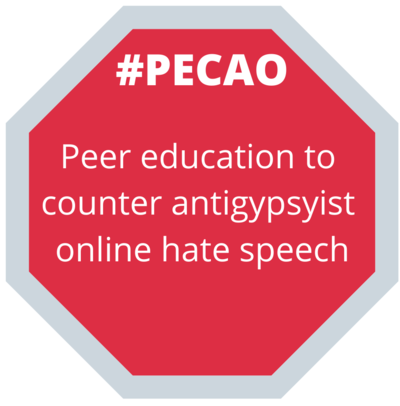Safer online spaces for Roma: Must be backed up by action!
Twitter believes that everybody should be empowered every day to speak their mind about issues that matter most to them and to be part of the public conversation.
Unfortunately, not everyone at Twitter has the same positive experience. Historically marginalised and underrepresented groups have important messages and ideas which can inspire everyone around the world and raise awareness about important issues in our societies. Individuals identifying with these groups, however, sometimes face harassment and abuse on the platform, which can jeopardize their freedom of expression.
Given our background and experience with antigypsyist hate speech online, Mustafa Jakupov, policy and project coordinator of ERGO network was invited to take part in the EMEA Safer Internet Day Summit on the 10th of February to make sure the Roma voices are heard.
We believe that everybody needs to feel safe online, to get active, and to speak up in front of a global audience.

The use of “innocent jokes” does not soften the online hate speech against Roma, but it perpetuates stereotypes and prejudices under an umbrella of humour where other aggressive comments and xenophobic spreads are distributed and multiplied. The recent example of the comedian Jimmy Carr in his show Dark Matter on Netflix proves this.
The British comedian has, in a recent Netflix stand-up special, said that:
“When people talk about the Holocaust, they are talking about the tragedy of 6 million Jewish lives lost to the Nazi war machine. But they never mention the thousands of Gypsies killed by the Nazis. Nobody ever wants to talk about it because nobody ever wants to talk about the positive aspects.”
The whole statement was dressed up as an edgy and even more – educational – joke, playing the card of “if you don’t laugh, you are just not smart enough to understand it”. However, although in his later performances Jimmy Carr has kept to his image of a brave honest man making fun of serious matters, the hypocrisy lies on the surface. He is not making fun of Holocaust per se, only targeting the two most vulnerable groups of the survivors (Roma and Jehovah’s Witnesses). The comedian is acting as a regular bully attacking only those, who he knows will not fight back – and thus feeding into the general discourse of antigypsyism and hate speech.
Hate speech as a manifestation of antigypsyism needs particular attention because of its multiplier effect:
- It influences public opinion, fuels tension, and paves the way for discrimination and hate crimes. Online media plays a particular role in spreading and inciting hate speech. It strengthens stereotypes, uses offensive language, denies, or trivializes antigypsyism.
- Through social media hate speech reaches millions of people and allows perpetrators to anonymously incite hatred and violence.

‘Haters’ do not use the term Roma but some hybrid terms that all society acknowledges as Roma. This requires IT companies to have knowledge of these terms, or in other words, the IT companies must keep up with the different forms of online antigypsyism.
Living in the times of Covid-19, online antigypsyism is becoming normalized for the whole society and not just the right-wing supporters. Laws are important, but prevention should be more highlighted. Therefore, creating a space for Roma where they can create content for counter-narratives is important, because finding quality content on Roma is hard. Another weak link in antigypsyism is the data collection as this will show the dimensions of hate speech.
The use of artificial intelligence to detect hate speech before it is posted is being developed, however, this might be tricky as the language is evolving as well and the AI models must adapt. On the other hand, people must be present as they will need to finalize the decision. This brings us to the importance of filing complaints.
Collaboration between CSO and IT platforms is crucial and there should be mutual learning and recommendations input. This also needs to be reflected in a form of cooperation between institutions, media, and CSO’s, where opportunities for spreading counter-narratives are supported, a distinctive law framework is created to criminalize hate speech and effective mechanisms are put in place that would involve CSO’s in the development of AI models and software in order to avoid further discrimination of marginalized groups in online places.







